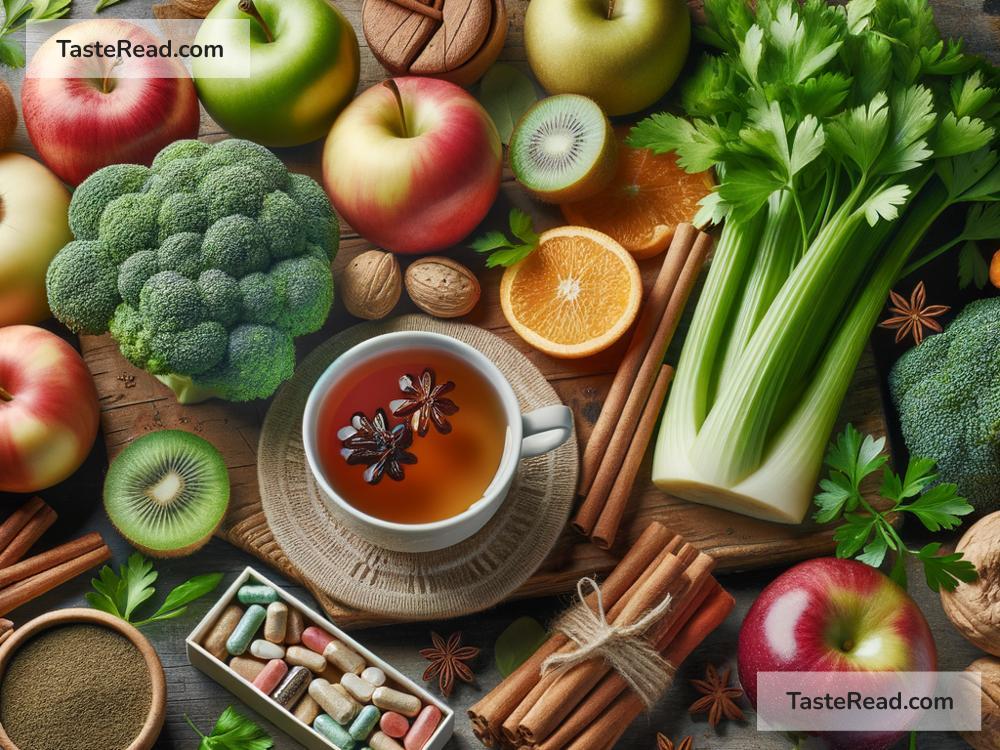Understanding the Role of Dietary Coumarins in Health
When it comes to food and health, nature has provided us with many compounds that can benefit our bodies in different ways. One such group of substances is coumarins. These naturally occurring substances are found in certain plants and are known for their potential health benefits. But what exactly are coumarins, and why should we care about them? In this article, we’ll explore what coumarins are, where you can find them, and how they might impact your health.
What Are Coumarins?
Coumarins are organic compounds that are naturally produced by plants. They belong to a group of chemicals known as polyphenols, which are widely studied for their antioxidant and anti-inflammatory properties. Coumarins were first isolated from a plant called sweet clover, but they’re found in a variety of fruits, vegetables, spices, and herbs.
These substances give plants their distinctive aroma and flavor, and they also play a protective role. For example, coumarins help plants defend themselves against pests, diseases, and environmental stress. The same protective effects may play a role in improving human health when we consume coumarin-rich foods.
Where Are Coumarins Found?
Coumarins are found in many foods and spices that are common in our diets. Some examples include:
- Cinnamon: Cinnamon is one of the richest sources of coumarins. The compound contributes to its warm and aromatic flavor.
- Tonka beans: These beans are well-known for their high coumarin content, but they are not commonly consumed due to regulations in some countries.
- Celery: This crunchy vegetable contains coumarins along with other nutrients.
- Carrots: Known for their benefits to eye health, carrots also contain small amounts of coumarins.
- Citrus fruits: Lemons, limes, and oranges contain coumarins in their peels.
- Chamomile tea: Drinking chamomile tea is not only relaxing but also a source of coumarins.
- Parsley and dill: These herbs contain coumarins that add flavor and potential health benefits to meals.
The Health Benefits of Dietary Coumarins
Scientists have been studying coumarins for years, and while research is ongoing, some promising health effects have been identified. Here are some ways coumarins may impact your health:
1. Antioxidant Properties
One of the key benefits of coumarins is their ability to fight oxidative stress. Oxidative stress happens when harmful molecules called free radicals damage your cells. Over time, this can lead to chronic diseases like cancer and heart disease. Coumarins act as antioxidants, helping to neutralize free radicals and protect your cells.
2. Anti-Inflammatory Effects
Inflammation is a natural process in the body, but when it becomes chronic, it can contribute to illnesses such as arthritis and diabetes. Coumarins have been shown to help reduce inflammation, which may support overall health and well-being.
3. Improved Blood Flow
Certain coumarins have been found to thin the blood slightly, which may improve circulation. This can be beneficial for people looking to maintain heart health or prevent conditions such as blood clots.
4. Anti-Microbial Benefits
Coumarins have antimicrobial properties, meaning they can help the body fight off harmful bacteria, viruses, and other pathogens. This could be one reason why coumarin-rich plants like parsley and chamomile have been used in traditional medicine.
5. Potential Cancer Prevention
Some studies suggest that coumarins may play a role in preventing the growth of cancer cells. While this area of research is still developing, the antioxidant and anti-inflammatory effects of coumarins may be part of the reason for their potential to protect against cancer.
Are There Any Risks?
While coumarins have many health benefits, consuming excessive amounts can sometimes lead to risks. For example, large doses of coumarins from certain sources like tonka beans or high amounts of cinnamon could lead to liver toxicity in sensitive individuals. However, for most people, consuming coumarins through normal dietary sources is safe and offers health benefits.
If you’re concerned about coumarins, moderation is key. Eating a balanced diet with a variety of foods will ensure you get the benefits of coumarins without overdoing it.
How to Incorporate Coumarins Into Your Diet
Adding coumarins to your diet is not difficult since they are found in common foods and spices. Here are a few tips:
- Sprinkle cinnamon on your oatmeal or in your coffee for a flavorful start to your day.
- Add fresh parsley or dill to your salads, soups, and sauces for both taste and nutrition.
- Drink chamomile tea after a long day to relax while benefiting from its coumarin content.
- Use citrus zest in baked goods or marinades to liven up your meals with coumarins.
Final Thoughts
Dietary coumarins are fascinating compounds that may play a role in protecting your health. Found in a variety of fruits, vegetables, herbs, and spices, they are easy to incorporate into a balanced diet. Whether you’re looking to reduce inflammation, fight oxidative stress, or simply enjoy their flavors, coumarin-rich foods are worth exploring.
As with all things, moderation is key. By enjoying coumarin-rich foods as part of a diverse and healthy diet, you can take advantage of their benefits while minimizing any risks. Nature’s bounty is full of surprises, and coumarins are one of its many gifts for our well-being. So next time you sprinkle cinnamon or sip chamomile tea, you’ll know a little more about how these delightful foods may be supporting your health!


